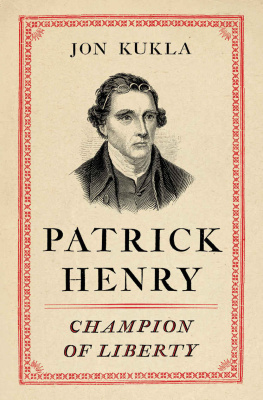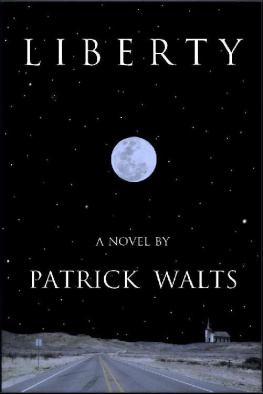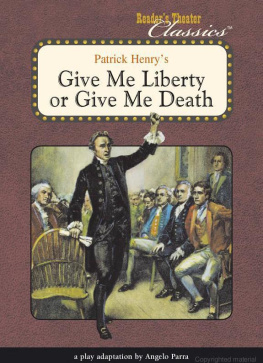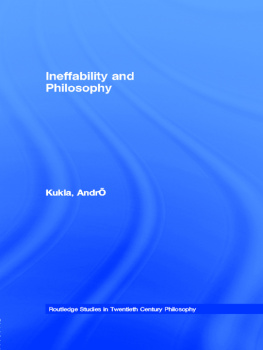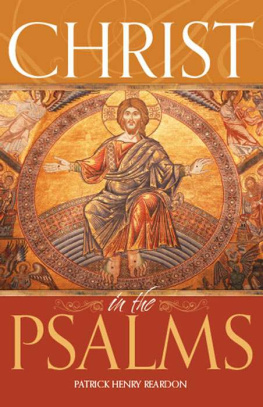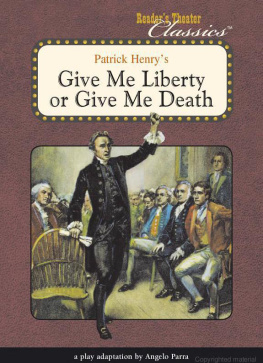Jon Kukla - Patrick Henry: Champion of Liberty
Here you can read online Jon Kukla - Patrick Henry: Champion of Liberty full text of the book (entire story) in english for free. Download pdf and epub, get meaning, cover and reviews about this ebook. year: 2017, publisher: Simon & Schuster, genre: Home and family. Description of the work, (preface) as well as reviews are available. Best literature library LitArk.com created for fans of good reading and offers a wide selection of genres:
Romance novel
Science fiction
Adventure
Detective
Science
History
Home and family
Prose
Art
Politics
Computer
Non-fiction
Religion
Business
Children
Humor
Choose a favorite category and find really read worthwhile books. Enjoy immersion in the world of imagination, feel the emotions of the characters or learn something new for yourself, make an fascinating discovery.
- Book:Patrick Henry: Champion of Liberty
- Author:
- Publisher:Simon & Schuster
- Genre:
- Year:2017
- Rating:5 / 5
- Favourites:Add to favourites
- Your mark:
- 100
- 1
- 2
- 3
- 4
- 5
Patrick Henry: Champion of Liberty: summary, description and annotation
We offer to read an annotation, description, summary or preface (depends on what the author of the book "Patrick Henry: Champion of Liberty" wrote himself). If you haven't found the necessary information about the book — write in the comments, we will try to find it.
Patrick Henry: Champion of Liberty — read online for free the complete book (whole text) full work
Below is the text of the book, divided by pages. System saving the place of the last page read, allows you to conveniently read the book "Patrick Henry: Champion of Liberty" online for free, without having to search again every time where you left off. Put a bookmark, and you can go to the page where you finished reading at any time.
Font size:
Interval:
Bookmark:
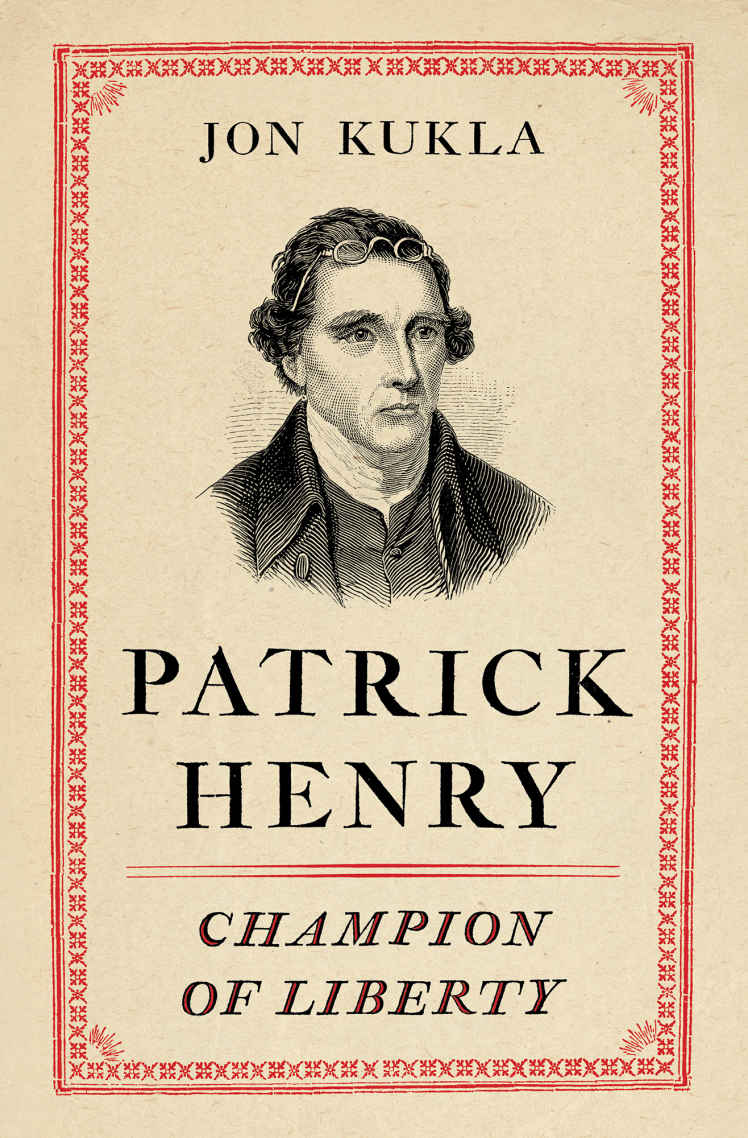
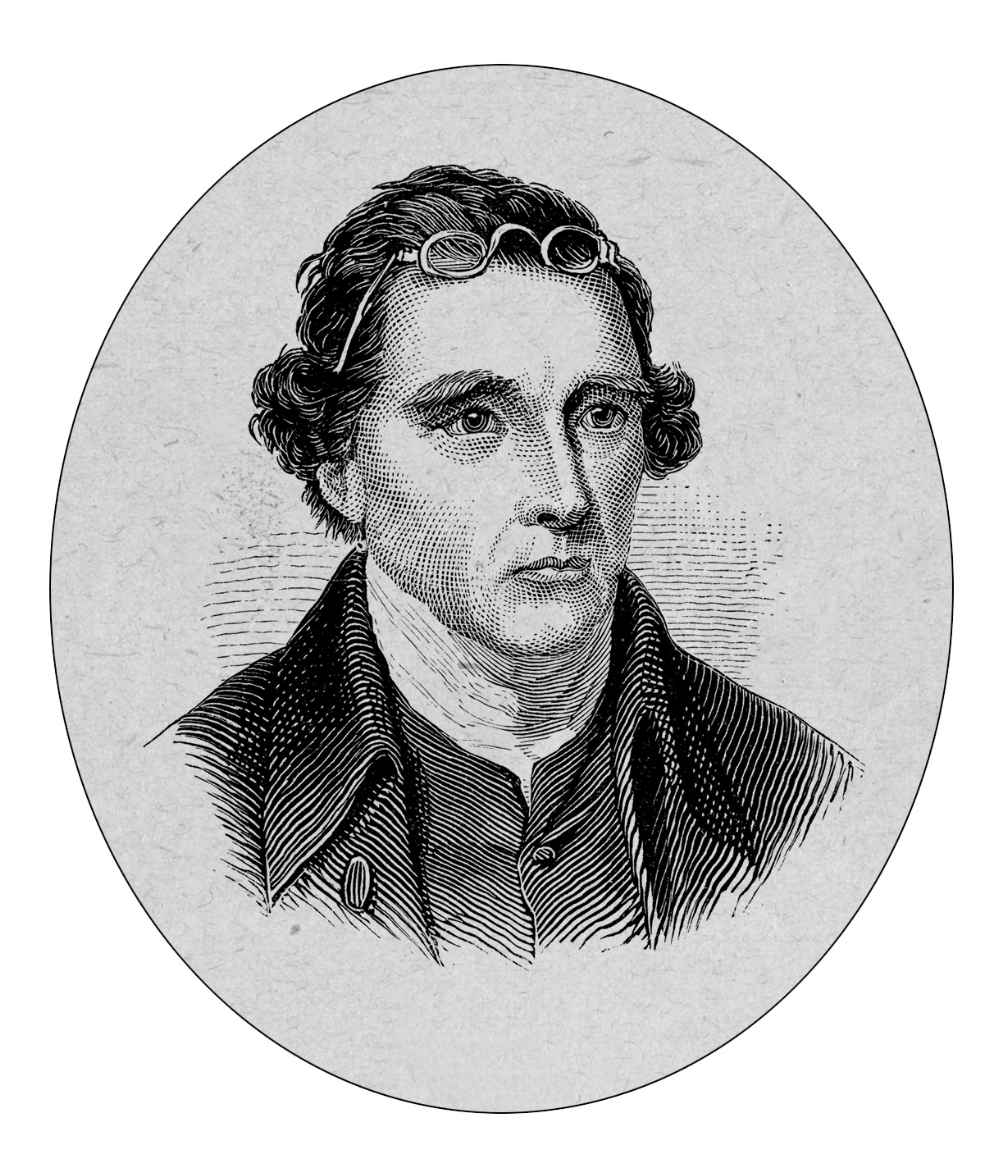
Thank you for downloading this Simon & Schuster ebook.
Get a FREE ebook when you join our mailing list. Plus, get updates on new releases, deals, recommended reads, and more from Simon & Schuster. Click below to sign up and see terms and conditions.
CLICK HERE TO SIGN UP
Already a subscriber? Provide your email again so we can register this ebook and send you more of what you like to read. You will continue to receive exclusive offers in your inbox.
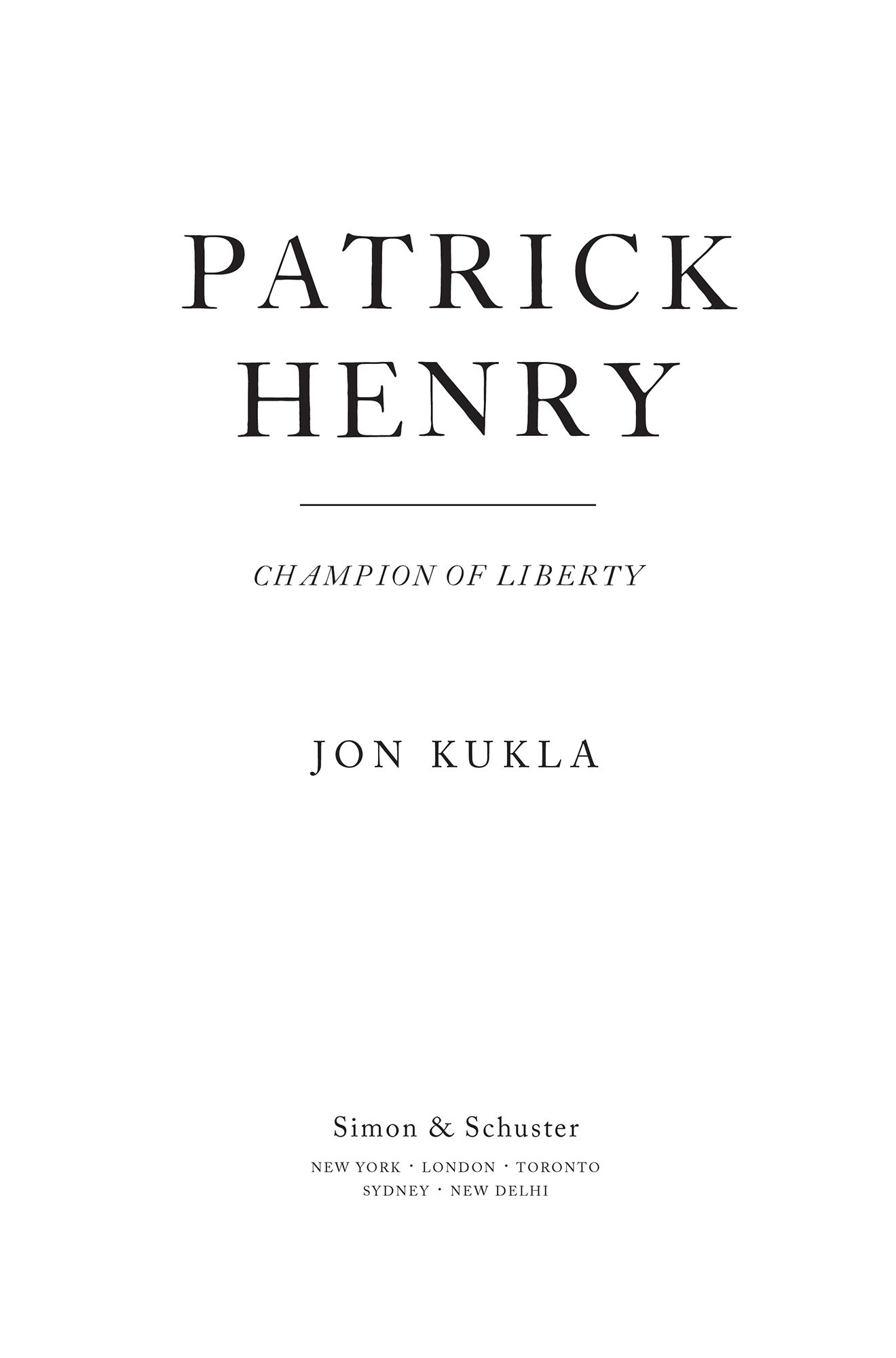
For Sandy
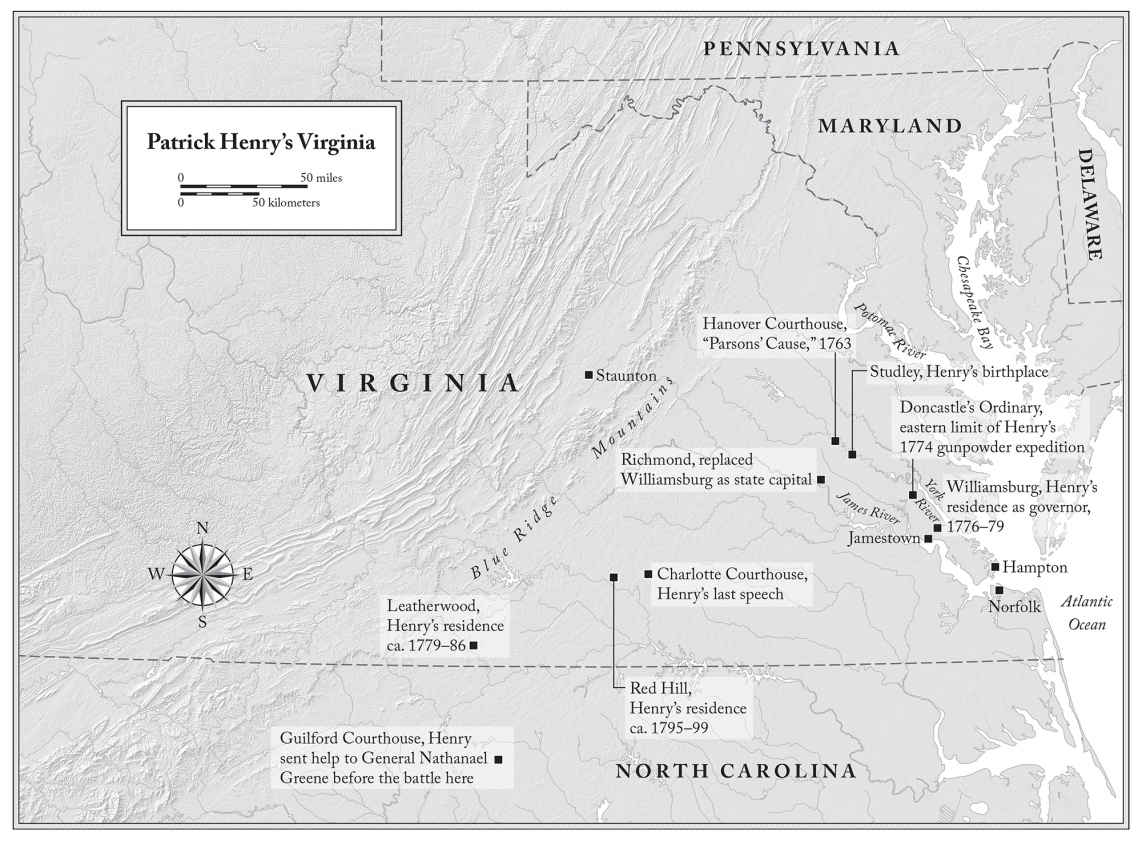
IN 1882 HENRY ADAMS, one of Americas great historians and certainly the finest writer among them, offered a distinct opinion about how to write a biography of Patrick Henryan opinion directly informed by his own experience. Although a Philadelphia publisher had just issued the twenty-third edition of William Wirts Sketches of the Life and Character of Patrick Henry since its original appearance in 1817, Henry Adams demanded something better. Henrys life is still unwritten, Adams declared in a letter to editor John T. Morse, Jr., as indeed is the case with all the Virginians except G.W.and one other.
Adams could also except John Randolph of Roanoke, whose life can now be read in the biography that he had just published in the American Statesman series, which Morse edited for Houghton, Mifflin and Companythough neither man was happy with the books presentation of Patrick Henrys eccentric Charlotte County neighbor. Randolph himself caused one of the books problems. The acidity is much too decided, Adams lamented, even if its tone had really been determined by the subject and the excess of acid is his. The other problem Adams attributed to his biography of John Randolph was his own identity as the Boston-born great-grandson of President John Adams and grandson of President John Quincy Adams. A man who really understood his material could do a great deal with Patrick Henry, Adams suggested, but he ought to be a Virginian and a hard studentit needs a Virginian to write of Virginia, if he would write the truth.
To be sure, several good books about Patrick Henry have appeared in the century and a third since the great historian declared that Henrys life was still unwritten, but there is some truth in the qualifications Adams highlighted. A Wisconsin-born author may be forgiven for supposing that Henry Adams had something more in mind than geographic place of birth when he advocated a Virginian and a hard studenteven if the Badger State had still been a part of the Old Dominion during Henrys first three terms as governor of the commonwealth. By testing everything against the best available primary sources, this book attempts to avoid the accumulated errors that mar many previous biographies. Many newly discovered sources provide fresh insights about Henry and his times. Finally, a greater appreciation of the social and political contexts of Henrys activities enriches this narrative of his life and career. If a historian who has devoted four decades to the study of Virginia counts as a hard student, then perhaps these pages can provide a fresh approximation of the truth about Patrick Henry. Toward that end, as Henry Adams counseled, an author can only do his best.
Jon Kukla
Richmond, Virginia
AFTER SWALLOWING A DOSE of liquid mercury on Thursday morning, June 6, 1799, Patrick Henry sat calmly near a window at the northeast corner of his modest house in Charlotte County, Virginia. As he pondered the blood congealing under his fingernails, Henry whispered words of comfort to his wife and children and waited for the mercury to cure him or kill him.
Henry was sixty-three. He had been seriously ill since early April, when he described his symptoms to physician George Cabell, of Lynchburg, as something like the Gravel. Kidney stones large and small the stone and the gravel were common afflictions in the eighteenth century, painful or annoying but rarely fatal. Pharmacy ads in the Virginia Gazette touted cures and treatments such as tincture of goldenrod, Blackries Lixivium, and Swinsens Electuary for the Stone and Gravel.
By the first of June, Dr. Cabells diagnosis was more grim. Henry was now suffering from a life-threatening intestinal obstruction called intussusception. Part of his intestine had telescoped into itself, blocking the digestive tract. Infection and death were imminent unless the blockage could be relieved. The remedy was risky. With luck the weight of a large dose of liquid mercury, which is 20 percent heavier than lead, might unravel the intestinal knot, pass through his bowels, and save Henrys life. If the blockage persisted, however, Henrys body would absorb the mercury, the muscles of his chest would fail, and he would die by suffocation.
Family members who gathered at Red Hill that morning left a poignant record of the final conversation between the dying patriot and his physician.
I suppose, doctor, this is your last resort, Henry said as he accepted the vial of mercury.
I am sorry to say, governor, that it is, Dr. Cabell replied. Acute inflammation of the intestines has already taken place; and unless it is removed mortification will ensue, if it has not already commenced, which I fear.
What will be the effect of this medicine? Henry asked.
It will give you immediate relief, or... Cabell was unable to finish his sentence.
You mean, Henry said, that it will give relief or will prove fatal immediately?
You can only live a very short time without it, Cabell explained, and it may possibly relieve you.
Excuse me, doctor, for a few minutes, Henry replied, drawing his silk cap down over his eyes. Holding the vial of mercury in his hand, Henry prayed briefly for his family, his country, and himself. He swallowed the medicine and spoke quietly for a while with his family and physician. Finally he breathed very softly for some moments and died.

For half a dozen years Patrick Henry had regarded Red Hill, the last of the twelve places he had lived since his birth in Hanover County in 1736, as one of the garden spots of the world. Five hundred feet above sea level, the plantations 2,900 acres straddled the line between Campbell and Charlotte counties. The southern vista from his house looked down on the ferry across the Staunton River and the wooded hills of Halifax County. Just beyond the southern horizon lay the VirginiaNorth Carolina border, drawn in a 1728 feat of exploration celebrated in William Byrd II s History of the Dividing Line.
To the north, through the window nearest the corner where he spent the last hours of his life, Henry could see a century-old osage-orange tree, which has since grown into the gnarled giant designated as an American champion for the species. Visible to his right were young figs ripening along the walkway that linked Henrys house and its adjacent kitchen, a small clapboard shed dominated by its massive brick fireplace and oven, with the two-room frame structure that served as his law office. There, on his desk, Patrick Henry had left two messages for posteritytestaments both to his private religious faith and his hopes for Americas future.
Font size:
Interval:
Bookmark:
Similar books «Patrick Henry: Champion of Liberty»
Look at similar books to Patrick Henry: Champion of Liberty. We have selected literature similar in name and meaning in the hope of providing readers with more options to find new, interesting, not yet read works.
Discussion, reviews of the book Patrick Henry: Champion of Liberty and just readers' own opinions. Leave your comments, write what you think about the work, its meaning or the main characters. Specify what exactly you liked and what you didn't like, and why you think so.

